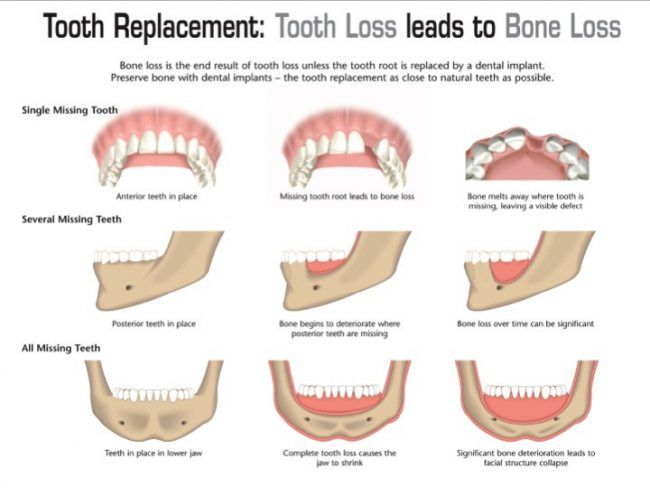Jaw Bone Resorption: Stop Bone Loss Now

Bone resorption, particularly in the jaw, is a concerning condition that affects many individuals, often as a result of tooth loss, gum disease, or other factors. This condition can lead to a range of issues, from aesthetic concerns to more severe health problems. Understanding the causes, symptoms, and, most importantly, the prevention and treatment options for jaw bone resorption is crucial for maintaining oral health and overall well-being.
Causes of Jaw Bone Resorption
Jaw bone resorption, or the loss of bone density in the jaw, can be attributed to several factors. One of the most common causes is tooth loss. When a tooth is lost, the part of the jawbone that supported it no longer receives the necessary stimulation, leading to resorption over time. This is because the presence of teeth helps to maintain the jawbone’s density through the constant pressure and stimulation during chewing and other oral functions.
Another significant cause is periodontal disease, also known as gum disease. This condition leads to the destruction of the periodontal ligament and the surrounding bone, causing the teeth to become loose and potentially leading to tooth loss. Other causes can include osteoporosis, a condition that weakens bones and makes them more susceptible to fractures and loss of density; certain medical treatments like chemotherapy and radiation therapy to the head and neck area, which can lead to bone loss; and genetic predispositions.
Symptoms of Jaw Bone Resorption
Recognizing the symptoms of jaw bone resorption is essential for early intervention. Some of the noticeable signs include:
- Denture instability: For individuals with dentures, they may find that their dentures no longer fit properly, leading to difficulties with eating, speaking, and overall comfort.
- Facial changes: As the jawbone shrinks, it can lead to changes in facial structure, making the face appear shorter or the lips to appear thinner.
- Gum recession: The gums may start to pull back from the teeth, exposing more of the tooth root.
- Loose teeth: Teeth may become loose due to the loss of supporting bone.
- Pain or discomfort: In some cases, jaw bone resorption can cause pain or discomfort, particularly if the condition is advanced.
Prevention of Jaw Bone Resorption
Preventing jaw bone resorption involves addressing the underlying causes and taking proactive steps to maintain jawbone health. Here are some strategies:
- Regular dental check-ups: Early detection of issues like gum disease or tooth decay can prevent the progression to more severe conditions that may lead to bone loss.
- Dental implants: For individuals who have lost teeth, dental implants can provide the necessary stimulation to the jawbone, helping to prevent resorption.
- Healthy diet: A diet rich in calcium and vitamin D can support bone health. Foods that are high in these nutrients include dairy products, leafy greens, and fortified cereals.
- Avoid smoking: Smoking is a significant risk factor for many oral health issues, including gum disease and tooth loss, which can lead to jaw bone resorption.
Treatment Options for Jaw Bone Resorption
While prevention is the best approach, there are treatment options available for those already experiencing jaw bone resorption. These include:
- Bone grafting: A surgical procedure where a piece of bone is taken from another part of the body or a synthetic bone substitute is used to rebuild the lost bone in the jaw.
- Dental implants with bone augmentation: In cases where the jawbone has receded too much to support dental implants, bone augmentation can be performed to rebuild the bone before placing the implants.
- Distraction osteogenesis: A procedure that involves cutting the bone and slowly separating the segments to allow new bone growth.
- Platelet-rich fibrin (PRF) therapy: A treatment that utilizes the patient’s own blood to stimulate healing and potentially regenerate bone.
Conclusion
Jaw bone resorption is a condition that can significantly impact an individual’s quality of life, affecting not only their oral health but also their appearance and overall well-being. By understanding the causes, recognizing the symptoms, and taking proactive steps towards prevention and treatment, it is possible to mitigate the effects of jaw bone resorption. Early intervention and the right treatment can make a substantial difference, allowing individuals to maintain their oral health and prevent the progression of this condition.
Frequently Asked Questions
Is jaw bone resorption reversible?
+While some degree of bone loss can be irreversible, certain treatments like bone grafting and dental implants can help rebuild and restore the jawbone. Early detection and intervention are key to the most effective outcomes.
Can jaw bone resorption be prevented with regular exercise?
+Regular exercise, particularly weight-bearing and resistance exercises, can help maintain overall bone density. However, the impact of exercise on jaw bone resorption specifically is less clear. Maintaining good oral hygiene, a healthy diet, and regular dental check-ups are more direct ways to prevent jaw bone loss.
What is the best treatment for jaw bone resorption?
+The best treatment for jaw bone resorption depends on the extent of the bone loss and the individual’s overall health. Options range from bone grafting and dental implants to less invasive treatments like platelet-rich fibrin therapy. Consulting with a dental specialist can help determine the most appropriate treatment plan.
Does osteoporosis increase the risk of jaw bone resorption?
+Yes, osteoporosis can increase the risk of jaw bone resorption. Osteoporosis weakens bones throughout the body, making them more susceptible to loss of density and fractures. This condition can exacerbate the effects of other factors that contribute to jaw bone loss, such as tooth loss or gum disease.
Can dental implants prevent jaw bone resorption?
+Dental implants can help prevent further jaw bone resorption by providing the necessary stimulation to the jawbone, similar to natural teeth. However, the success of implants in preventing bone loss depends on various factors, including the quality and quantity of the remaining bone, the implant placement technique, and the patient’s overall oral health.


